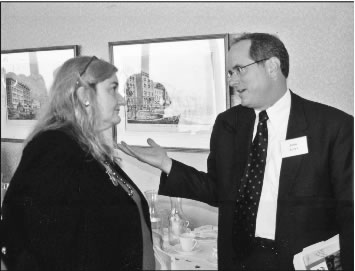'The Shock Doctrine' and Chicago 'school reform', continued
The following is the Introduction to “The Shock Doctrine.” Klein's words are in quotation marks.
INTRODUCTION: BLANK IS
BEAUTIFUL
THREE DECADES OF ERASING AND REMAKING THE WORLD
By Naomi Klein
“Now the earth was corrupt in God’s sight, and the earth was filled with violence. And God saw that the earth was corrupt; for all flesh had corrupted its ways upon the earth. And God said to Noah, “I have determined to make an end of all flesh, for the earth is filled with violence because of them; now I am going to destroy them along with the earth.” (Genesis 6:11, NRSV)
“Shock and Awe are actions that create fears, dangers, and destruction that are incomprehensible to the people at large, specific elements/sectors of the threat society, or the leadership. Nature in the form of tornadoes, hurricanes, earthquakes, floods, uncontrolled fires, famine, and disease can engender Shock and Awe.” (Shock and Awe: Achieving Rapid Dominance, the military doctrine for the U.S. war on Iraq).
“I met Jamar Perry in September 2005, at the big Red Cross shelter in Baton Rouge, Louisiana. Dinner was being doled out by grinning young Scientologists, and he was standing in line. I had just been busted for talking to evacuees without a media escort and was now doing my best to blend in, a white Canadian in a sea of African-American Southerners. I dodged into the food line behind Perry and asked him to talk to me as if we were old friends, which he kindly did.
 Photo above. The tragedy of New Orleans is a charter school zealot's 'Greenfield Site': Chicago’s John Ayers, above right, has referred to New Orleans in words that could come from any of the dozen nations and cities profiled in ‘The Shock Doctrine.’ “This is the greenfield site that you never get in public education,” Ayers said after Louisiana abolished the public schools of New Orleans, fired the city’s public school teachers, and replaced most of the public schools with by-application-only charter schools based on models brought in from Chicago. Above: Ayers was interviewed by (then) Chicago Tribune reporter Lori Olszewski on October 2, 2003, at the “Mid Morning Club” atop Chicago’s Bank One building. The Mid Morning Club event above featured a “State of the Schools” speech to corporate Chicago by (then) American Federation of Teachers (AFT) president Sandra Feldman. In the course of her Chicago visit, Feldman reiterated the union’s “critical” support for “No Child Left Behind” and charter schools. Substance photo by George N. Schmidt.“Born and raised in New Orleans, he’d been out of the flooded city for a week. He looked about seventeen but told me he was twenty-three. He and his family had waited forever for the evacuation buses; when they didn’t arrive, they had walked out in the baking sun. Finally they ended up here, a sprawling convention center, normally home to pharmaceutical trade shows and “Capital City Carnage: The Ultimate in Steel Cage Fighting,” now jammed with two thousand cots and a mess of angry, exhausted people being patrolled by edgy National Guard soldiers just back from Iraq.
Photo above. The tragedy of New Orleans is a charter school zealot's 'Greenfield Site': Chicago’s John Ayers, above right, has referred to New Orleans in words that could come from any of the dozen nations and cities profiled in ‘The Shock Doctrine.’ “This is the greenfield site that you never get in public education,” Ayers said after Louisiana abolished the public schools of New Orleans, fired the city’s public school teachers, and replaced most of the public schools with by-application-only charter schools based on models brought in from Chicago. Above: Ayers was interviewed by (then) Chicago Tribune reporter Lori Olszewski on October 2, 2003, at the “Mid Morning Club” atop Chicago’s Bank One building. The Mid Morning Club event above featured a “State of the Schools” speech to corporate Chicago by (then) American Federation of Teachers (AFT) president Sandra Feldman. In the course of her Chicago visit, Feldman reiterated the union’s “critical” support for “No Child Left Behind” and charter schools. Substance photo by George N. Schmidt.“Born and raised in New Orleans, he’d been out of the flooded city for a week. He looked about seventeen but told me he was twenty-three. He and his family had waited forever for the evacuation buses; when they didn’t arrive, they had walked out in the baking sun. Finally they ended up here, a sprawling convention center, normally home to pharmaceutical trade shows and “Capital City Carnage: The Ultimate in Steel Cage Fighting,” now jammed with two thousand cots and a mess of angry, exhausted people being patrolled by edgy National Guard soldiers just back from Iraq.
“The news racing around the shelter was that Richard Baker, a prominent Republican congressman from this city, had told a group of lobbyists, ‘We finally cleaned up public housing in New Orleans. We couldn’t do it, but God did.’ Joseph Canizaro, one of New Orleans’ wealthiest developers, had just expressed a similar sentiment: “I think we have a clean sheet to start again. And with that clean sheet we have some very big opportunities.’ All that week, the Louisiana State Legislature in Baton Rouge had bee crawling with corporate lobbyists helping to lock in those big opportunities: lower taxes, fewer regulations, cheaper workers and a ‘smaller, safer city’ — which in practice mean plans to level the public housing projects and replace them with condos. Hearing all the talk of ‘fresh starts’ and ‘clean sheets,’ you could almost forget the toxic stew of rubble, chemical outflows and human remains just a few miles down the highway.
“Over a the shelter, Jamar could think of nothing else. ‘I really don’t see it as cleaning up the city. What I see is that a lot of people got killed uptown. People who shouldn’t have died.’
“He was speaking quietly, but an older man in line in front of us overheard and whipped around. ‘What is wrong with these people in Baton Rouge? This isn’t an opportunity. It’s a goddamned tragedy. Are they blind?’
“A mother with two kids chimed in. ‘No, they’re not blind, they’re evil. They see just fine.’
“One of those who saw opportunity in the floodwaters of New Orleans was Milton Friedman, grand guru of the movement for unfettered capitalism and the man credited with writing the rulebook for the contemporary, hypermobile global economy. Ninety-three years old and in failing health, ‘Uncle Miltie,’ as he was known to his followers, nonetheless found the strength to write an op-ed for The Wall Street Journal three months after the levees broke. ‘Most New Orleans schools are in ruins,’ Friedman observed, ‘as are the homes of the children who have attended them. The children are now scattered all over the country. This is a tragedy. It is also an opportunity to radically reform the educational system.
“Friedman’s radical idea was that instead of spending a portion of the billions of dollar in reconstruction money on rebuilding and improving New Orleans’ existing public school system, the government should provide families with vouchers, which they could spend at private institutions, many run at a profit, that would be subsidized by the state. It was crucial, Friedman wrote, that this fundamental change not be a stopgap but rather a ‘permanent reform.’
“A network of right-wing think tanks seized on Friedman’s proposal and descended on the city after the storm. The administration of George W. Bush backed up their plans with tens of millions of dollars to convert New Orleans schools into ‘charter schools.’ Publicly funded institutions run by private entities according to their own rules. Charter schools are deeply polarizing in the United States, and nowhere more so than in New Orleans, where they are seen by many African American parents as a way of reversing the gains of the civil rights movement, which guaranteed all children the same standard of education. For Milton Friedman, however, the entire concept of a state-run school system reeked of socialism. Ion his view, the state’s sole functions were ‘to protect our freedoms both from the enemies outside our gates and from our fellow-citizens: to preserve law and order, to enforce private contracts, to foster competitive markets.’ In other words, to supply the police and the soldiers — anything else, including providing free education, was an unfair interference in the market.
“In sharp contrast to the glacial pace with which the levees were repaired and the electricity grid was brought back online, the auctioning off of New Orleans’ school system took place with military speed and precision. Within nineteen months, with most of the city’s poor residents still in exile, New Orleans’ public school system had been almost completely replaced by privately run charter schools. Before Hurricane Katrina, the school board had run 123 public schools; now there were 31. New Orleans teachers used to be represented by a strong union; now the union’s contract had been shredded and its forty-seven hundred members had all been fired. Some of the younger teachers were rehired for the charters, at reduced salaries; most were not.
“New Orleans was now, according to The New York Times, ‘the nation’s preeminent laboratory for the widespread use of charter schools,’ while the American Enterprise Institute, a Friedmanite think tank, enthused that ‘Katrina accomplished in a day…what Louisiana school reformers couldn’t do after years of trying.’ Public school teachers, meanwhile, watching money allocated for the victims of the flood being diverted to erase a public system and replace it with a private one, were calling Friedman’s plan an ‘educational land grab.’
“I call these orchestrated raids on the public sphere in the wake of catastrophic events, combined with the treatment of disasters as exciting market opportunities, ‘disaster capitalism.’”


